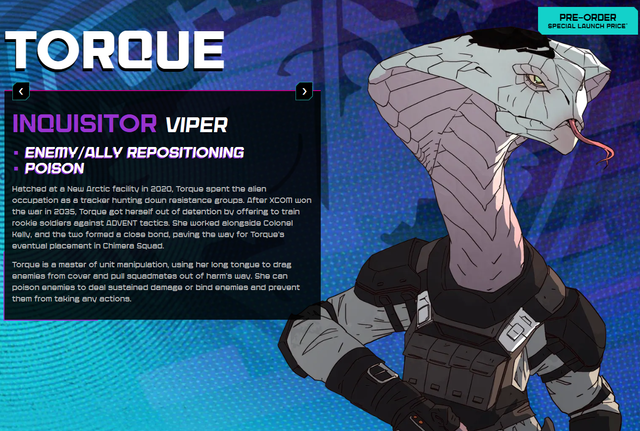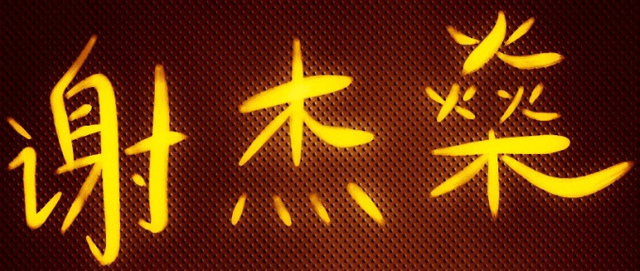My fondest memory of X-COM (the original 1994 game) was my first base defense mission.
Which happened to be the first mission of the campaign.
The run began swimmingly. I established my first base on the coast of North Africa. From here I could cover a goodly portion of Europe, Northern Africa and the Middle East.
Right off the bat, I went to work on improving the base. New radar installations, new hangars, deletion of the two hangars at the lower left and right corners of the screen, assigning equipment to the Skyranger, weeding out agents with low bravery and hiring replacements, recruiting new scientists and putting them to work. I’d burned through a large fraction of my starting budget, but I was determined to start the game well.
Then the aliens came.
No warning. No detection. No UFO spotted notification. One moment I was looking at the Geoscape, the next a cutscene played, showing klaxons going off and agents rushing to their stations. Next thing I knew, the game showed me the briefing for a base defence mission. And the penalties for failure.
I would not fail.
The original base layout was shaped like an ‘X’. I’d redesigned it so that it resembled a ‘T’. This forced the aliens through a narrow chokepoint, and allowed my agents and Heavy Weapons Platform to mass fires on the enemy. The moment I rushed my agents to the access lift, the battle began.
It was brutal. A long-distance firefight where both sides barely saw each other. My recruits shot into the dark, plasma rounds flew in from off-screen, explosions echoed through the base. Every time I took fire, I ordered my men to spray down the area with high explosive shells and rockets. Only a handful of times did I see the enemy.
But I won.
Fast forward 26 years, and now XCOM is showing signs of a different kind of infiltration: social justice ideology.
XCOM: Chimera Squad is the latest installment in the franchise. Here, the player commands a squad of 11 agents, both humans and aliens, to defend City 31 against shadowy forces.
An interesting premise. In it I saw callbacks to X-Com: Apocalypse. Then I looked at the main website.
The game is set 5 years after the end of XCOM 2. In 5 years, humans and aliens have somehow set aside their differences to build City 31, a city where humans and aliens can coexist side by side in peace.
The premise alone flew in the face of history. Peace treaties do not end hostilities. They may end formal warfare between parties, but they do not dispel lingering resentments and hatreds. The post-war period of every major war in history saw purges, imprisonment and executions — formal or otherwise.
After World War II, concentration camp prisoners tortured their former guards to death. Israel pursued Nazi war criminals for decades. All over Europe, mobs hunted down Nazis and collaborators.
Such witch hunts weren’t limited to post-war Europe. After the fall of South Vietnam, the communists rounded up South Vietnamese soldiers, officials and intellectuals and subjected them to years of brutal ‘re-education’– those they didn’t execute. When the communists seized control of Russia after the October Revolution, they spent the next two decades purging their enemies and counter-revolutionaries. In South Africa, generations after the end of apartheid, racial tensions and racial violence remain a way of life.
In the XCOM 2 timeline, aliens and their human collaborators ruled the world for decades. They ruthlessly exterminated resistance cells and set in motion a master plan to genocide all nonessential humans on the planet.
For their part, the new XCOM has no room for prisoners. Every alien and ADVENT soldier they meet, they kill. XCOM 2 only allowed players to capture enemy VIPs in specific missions. Outside these events, XCOM took no prisoners. This is implies an organization with no room for mercy.
A mere 5 years isn’t enough to wipe away the hostility generated by such brutality. Even a generation might not be enough. To claim that enemies who fought a brutal war of extermination can somehow live in peace side-by-side a mere 5 years later is to mock the beast that dwells in the human heart.
The name of City 31 is bland and utilitarian, evocative of Soviet-era closed cities that bore names like Uzhur-4 and Perm-76. A naming sense like this, paired with the character designs, reveals an anti-aesthetics of ugliness and propaganda, one that glosses over human needs and emotions in favour of pushing narratives.
But let’s leave that aside. Leave aside the removal of permadeath, that the vaunted breach mode represents a narrowing of tactical options compared to earlier games, that there is only 1 medic in a game where losing an agent means game over and where you can only deploy a limited number of agents per mission. Leave all of that aside and read the following screenshot.

In these two paragraphs you see everything wrong with the latest XCOM.
Torque fought for the enemy, hunting down resistance groups. That marks her as an enemy combatant, one that likely killed many humans in the line of duty. ‘Offering to train rookie soldiers against ADVENT tactics’ isn’t enough for redemption. Not in the eyes of an organization that conducted a total war of genocide against the alien occupiers.
In the United States, military, law enforcement and intelligence personnel learn tactics and tradecraft from master criminals. These criminals are invited to training camps and workshops to give lectures and train these personnel.
They may be granted special privileges and considerations. They get a chance to leave their cell for a few hours. But they are not released from jail until they have fully paid off their debts to society. If mere criminals aren’t released from jail for assisting the lawful authorities, why would an enemy combatant be allowed to leave, much less take up arms?
Remember that this timeline’s XCOM is killed every alien and ADVENT operative it encountered. Such an approach breeds a hostile, aggressive attitude towards aliens and collaborators, entrenched by the aliens’ brutality.
Why would this new XCOM release an alien combatant from detention just because it offered to train its soldiers?
Torque might have been given special privileges. She might be treated as a trusty. XCOM may even spare her from execution. But she would still have to bear her punishment.
In the annals of human warfare, traitors and defectors are not trusted so easily. If a man can switch loyalties so fast, he could just as easily switch back. Or he might be an enemy spy.
During the Rhodesian War, the Selous Scouts specialised in turning captured guerillas. They isolated prisoners from their former communities, reminded them of the hardships of bush life, showed them the consequences of resistance (a quick trial and a quicker hanging), then offered them the alternative of signing up. Those who joined would be given a bounty plus a regular salary, and their families would be protected and cared for by the state. After a long period of observation and testing, the prospective recruit would be sent on a combat operation in the field with a weapon—but no live ammunition. If he passed this test, he would be admitted as a full member.
During the Vietnam War, the US military stood up the Kit Carson Scouts. Composed of Vietcong defectors, they specialised in gathering intelligence. Other defectors served in other military units, including the Underwater Demolition Teams.
In his memoir, Roy H. Boehm described some defectors as having the words ‘Sat Cong’ tattooed on their bodies. The words meant ‘Kill Communists’ — and any soldier with this tattoo would expect a brutal and painful death if he were captured. This represents a burning of bridges, a symbol of total commitment to the new cause.
A defector must earn the trust of his new masters before he will be allowed to take arms in the field. The final and surest test is a operation against his former comrades. Simply ‘training recruits’ isn’t going to cut it.
‘Colonel Kelly’ in the screenshot is implied to be Jane Kelly, the sole survivor from the tutorial mission in XCOM 2. To become a Colonel in XCOM, an operative must personally kill dozens of aliens in combat.
Why would Kelly form a ‘close bond’ with Torque? She spent an entire war killing many aliens and watching her friends be killed by aliens just like this one. Why would she get close to an alien who didn’t demonstrate full commitment to the human cause, who hadn’t expunged the sin of hunting down resistance members?
For her part, why would Torque strike up a ‘close bond’ with Kelly? Kelly is the symbol of her former enemy. Torque was raised and trained all her life to hunt human resistance, and engaged in combat operations against the resistance. Why the change of heart?
To their respective races, Kelly and Torque would be seen as traitors. Kelly, for associating with an enemy combatant who hasn’t demonstrated trustworthiness; Torque, for associating with an enemy combatant who killed many of her kind.
To add icing on the cake, it’s outright stated that Torque’s relationship with Kelly landed her a position in Chimera Squad.
In the real world, in elite police units and military formations, no one would ever trust anyone who used personal connections to land a place in the unit. A unit like Chimera Squad would face high-risk situations on a regular basis. Every operator needs to have faith that every other operator on the team earned his place in the team.
It doesn’t matter how skilled Torque is. It doesn’t matter what kind of relationship she and Kelly might have. By using her connection to get into the squad, everybody will say that she got into the squad because she slept with Kelly. This will poison the team dynamic, make everyone view her with suspicion, have them wonder if she were truly skilled or just a skilled manipulator. This is why every uniformed organisation has rules against fraternisation: to maintain unit morale and confidence.
SJWs see no problem in this. This is how they operate. One person gets a foot in the door, usually in Human Resources, then hires fellow travelers in increasingly greater numbers using personal connections until they seize control of the organization.
In organizations where you must trust your life to the person next to you, relations like this is a liability. It only works in tight tribal-based communities or family-owned organizations, where having personal connections is an explicit requirement for membership. The only way to make a unit as diverse as Chimera Squad work is if everyone can trust everyone else to do their jobs and place the unit ahead of the individual.
XCOM: Chimera Squad shows many overt and subtle signs of Social Justice infiltration. The lore reveals a whole-hearted commitment to SocJus ideas of pseudo-diversity and anti-aesthetics, and a complete detachment from the reality of human relationships and dynamics.
By ignoring deeper truth in favour of modern-day platitudes, XCOM: Chimera Squad shows that it places messaging first. This is the position of the propagandist, not the creator or entertainer.
Regardless of how the game performs, if the SJWs aren’t purged, from here on out it is only a long slide down.

My stories are written for the readers first, and are refreshingly free of social justice ideology or other political messaging. Check out the IndieGoGo campaign for my latest series SINGULARITY SUNRISE here!
If you want a taste of what to expect in SINGULARITY SUNRISE, sign up for my newsletter here to receive a FREE ebook!